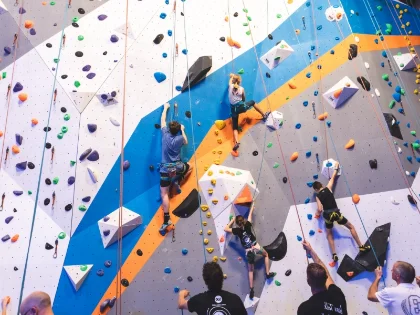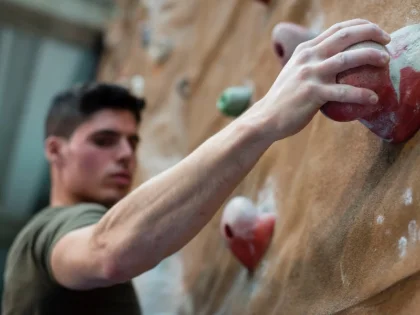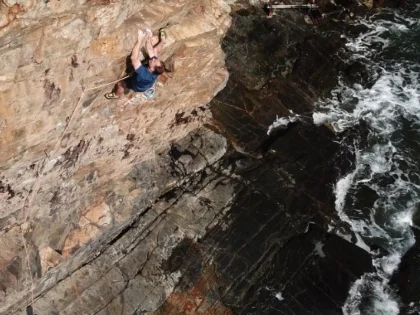What is the Ideal Body Fat for Climbers?
Many climbers have a tendency to overlook the weight component in favor of strength. The misconception that performance climbing necessitates a low body fat percentage is one that is easily believed. Is this, however, actually true? Anthropometric studies (height, ape index, and arm length index) reveal that elite climbers are quite slender.
1. An Overweight Muscle Mass
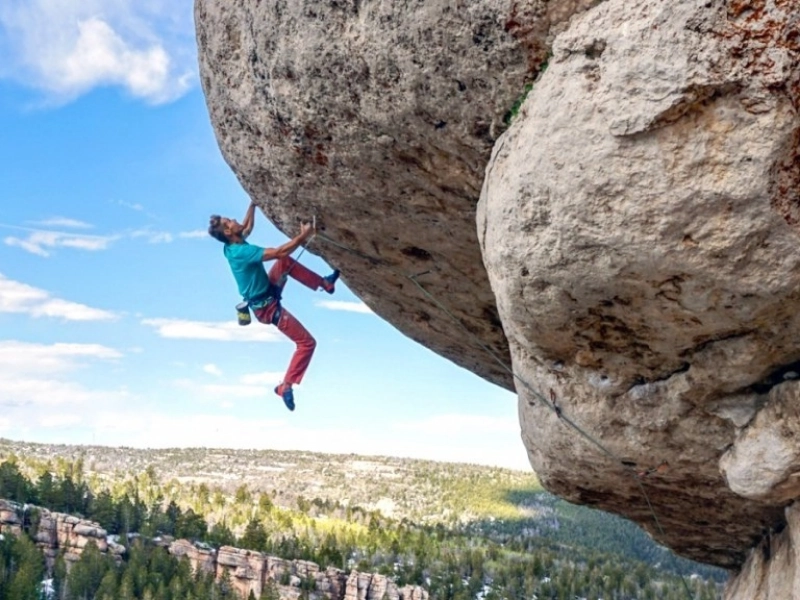 Although not the only factor, the climber's body fat percentage is a significant predictor of climbing performance. Climbing performance may also be negatively impacted by an excess of nonfunctional muscle mass.
It's interesting to note that the majority of successful climbers have low body fat percentages. This is comparable to top performers in other sports with a high power-to-weight ratio, such as rowing, gymnastics, and jumping.
However, it's not always a positive thing. If someone emphasizes muscle building throughout their climbing training, they may develop large muscles in the wrong areas (such as the shoulders or biceps), which will make them heavier on the rock and lower their strength-to-weight ratio.
It is vital to remember that appropriate and efficient technique, rather than body shape or weight, is the primary factor that determines climbing performance. The ability to push with the feet instead of the arms requires a great deal of time and effort, but if mastered, it can be an extremely useful technique for enhancing climbing.
Although not the only factor, the climber's body fat percentage is a significant predictor of climbing performance. Climbing performance may also be negatively impacted by an excess of nonfunctional muscle mass.
It's interesting to note that the majority of successful climbers have low body fat percentages. This is comparable to top performers in other sports with a high power-to-weight ratio, such as rowing, gymnastics, and jumping.
However, it's not always a positive thing. If someone emphasizes muscle building throughout their climbing training, they may develop large muscles in the wrong areas (such as the shoulders or biceps), which will make them heavier on the rock and lower their strength-to-weight ratio.
It is vital to remember that appropriate and efficient technique, rather than body shape or weight, is the primary factor that determines climbing performance. The ability to push with the feet instead of the arms requires a great deal of time and effort, but if mastered, it can be an extremely useful technique for enhancing climbing.
2. A lot of belly fat
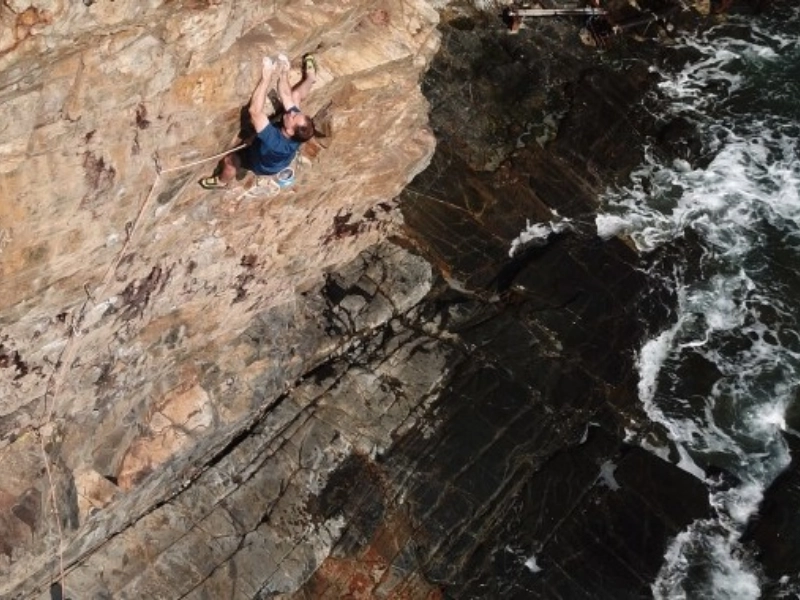 Since climbing is a sport that relies on gravity, it is only natural that climbers who weigh less would appear to do better. Going too low on the body fat percentage, however, should be avoided since this might put the body under undue stress and ultimately ruin your climbing abilities.
Climbers should also be mindful of their muscle weight, particularly if it is improperly distributed. For instance, it may be challenging to balance your center of gravity on tiny holds if you have strong arms or legs. Weak core strength may make this worse.
Try practicing mountain climbers (a plank on the floor with your feet together and your palms on the ground) or pushups, burpees, and triceps dips to enhance your balance and coordination. These workouts work every part of your body, including the core, and can raise your heart rate, which strengthens your heart and burns a lot of calories. Strive for one or two hours a week, at the very least, of cardiovascular activity.
Since climbing is a sport that relies on gravity, it is only natural that climbers who weigh less would appear to do better. Going too low on the body fat percentage, however, should be avoided since this might put the body under undue stress and ultimately ruin your climbing abilities.
Climbers should also be mindful of their muscle weight, particularly if it is improperly distributed. For instance, it may be challenging to balance your center of gravity on tiny holds if you have strong arms or legs. Weak core strength may make this worse.
Try practicing mountain climbers (a plank on the floor with your feet together and your palms on the ground) or pushups, burpees, and triceps dips to enhance your balance and coordination. These workouts work every part of your body, including the core, and can raise your heart rate, which strengthens your heart and burns a lot of calories. Strive for one or two hours a week, at the very least, of cardiovascular activity.
3. A lot of leg fat
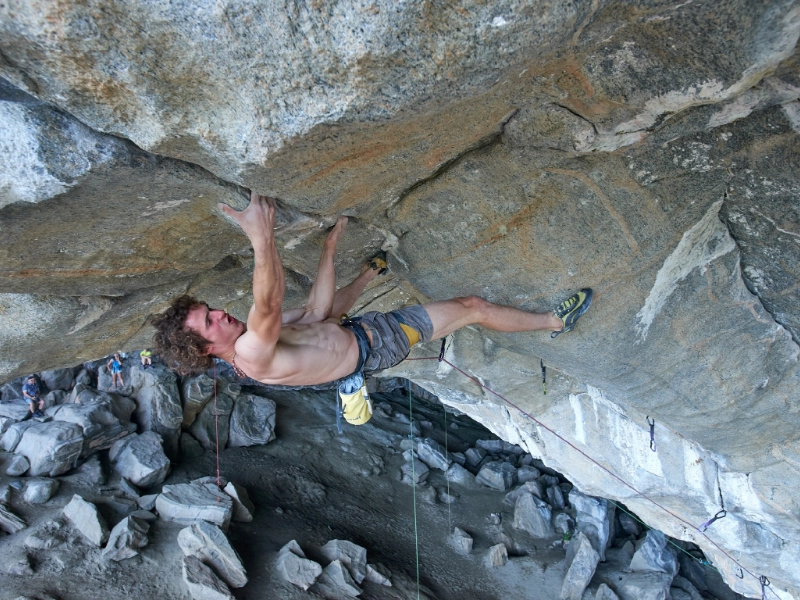 You may already be aware that the legs provide the majority of the power needed to climb. Excessive leg fat might impede one's ability to reach higher and steeper routes and make it more difficult to pull on the holds. The causes of excessive leg fat can include age, bodybuilding or cross-fit training, genetics, and prior athletic experience.
Reducing your body fat percentage is one of the most crucial things you can do to enhance your climbing performance. Although we frequently focus on strength, there are other ways to enhance performance, starting with optimizing body composition.
Coaches and other adults who advise weight loss for climbing goals should be cautious around adolescent climbers in particular, as this can put them in danger of eating disorders. It may also lessen the availability of energy and obstruct the skeletal system's development.
You may already be aware that the legs provide the majority of the power needed to climb. Excessive leg fat might impede one's ability to reach higher and steeper routes and make it more difficult to pull on the holds. The causes of excessive leg fat can include age, bodybuilding or cross-fit training, genetics, and prior athletic experience.
Reducing your body fat percentage is one of the most crucial things you can do to enhance your climbing performance. Although we frequently focus on strength, there are other ways to enhance performance, starting with optimizing body composition.
Coaches and other adults who advise weight loss for climbing goals should be cautious around adolescent climbers in particular, as this can put them in danger of eating disorders. It may also lessen the availability of energy and obstruct the skeletal system's development.
4. A surplus of body fat
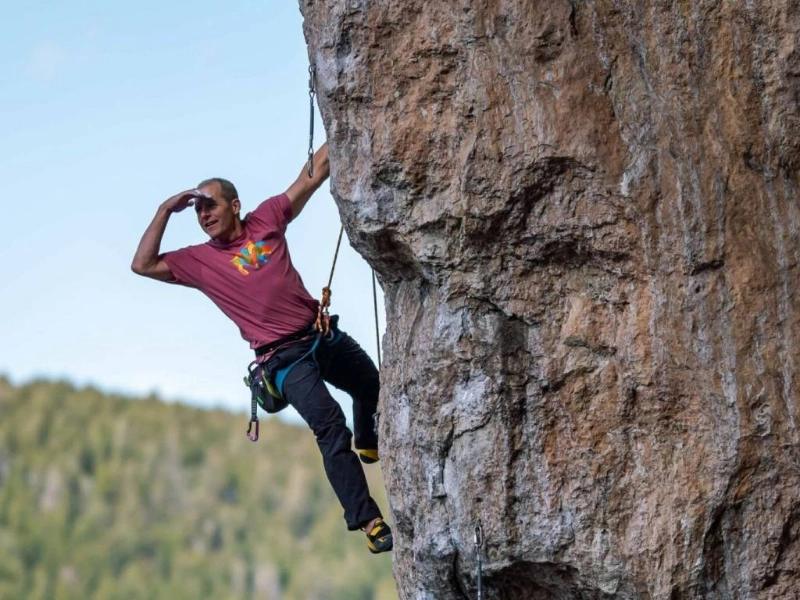 Climbers are generally considered to be rather slender. According to a few studies examining the relationship between anthropometric factors (weight, height, BMI, ape index) and climbing performance, being taller and slimmer may enhance your climbing performance.
It's crucial to remember that these connections do not necessarily imply causality. Even if someone is thin, they may not be able to function at a high level. Numerous additional elements need to be taken into account, including food, meaningful training, and body composition.
Climbers must watch what they eat and consume the right number of calories. Apart from eating a diet rich in vegetables, whole grains, and lean protein, it's a good idea to try to lose extra body fat through regular cardiac exercise like running. Anorexia nervosa and bulimia nervosa are eating disorders that can seriously harm climbers' ability to climb and their general health when they are focused too much on weight loss.
Climbers are generally considered to be rather slender. According to a few studies examining the relationship between anthropometric factors (weight, height, BMI, ape index) and climbing performance, being taller and slimmer may enhance your climbing performance.
It's crucial to remember that these connections do not necessarily imply causality. Even if someone is thin, they may not be able to function at a high level. Numerous additional elements need to be taken into account, including food, meaningful training, and body composition.
Climbers must watch what they eat and consume the right number of calories. Apart from eating a diet rich in vegetables, whole grains, and lean protein, it's a good idea to try to lose extra body fat through regular cardiac exercise like running. Anorexia nervosa and bulimia nervosa are eating disorders that can seriously harm climbers' ability to climb and their general health when they are focused too much on weight loss.


